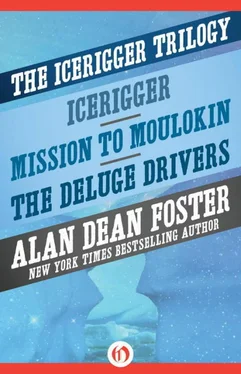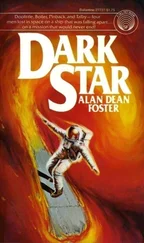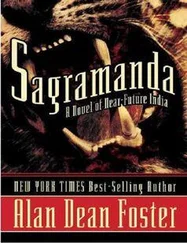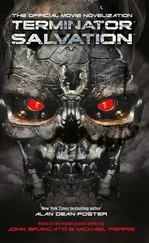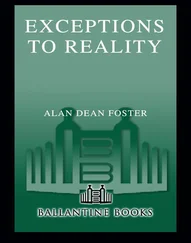“The ground we’re standing in, young feller-me-lad.” September gestured at the wall. “That blob up there, that’s Arsudun. Those smaller spots represent the Landgrave’s town, Brass Monkey, and the like.”
“You have a fine eye for information.” Hwang sounded approving.
September shrugged. “I’ve had some experience identifying topographic features from above. Why the infrared? Why not just a straight satellite photo?”
One of Hwang’s colleagues spoke up, a touch of bitterness in his voice. “This is a minor outpost. We don’t rate a fully equipped survey satellite. No high-resolution cameras. Just straightforward instrumentation.”
Ethan wanted to ask his friend where he’d gained experience “identifying topographic features from above,” but Hwang was pressing on, using her remote’s built-in pointer to trace features on the wall as the image changed.
“Do you recognize this?” The center of the picture was an intense orange.
“Looks like Sofold,” Ethan ventured. “The home island of our Tran friends. The central volcano is unmistakable.”
“That is correct. And this?” The two men stared hard at the image and looked blank. “That’s not surprising,” Hwang told them. “There’s no way you could recognize it because you haven’t been there. No human has. It lies far to the southeast of Arsudun.” She ran the wall through a rapid sequence of similar images.
“This is an infrared mosaic of the large southern continent.” Her pointer moved over the images like a two-dimensional insect. “Notice these features here. These big clouds and”—she dipped the pointer—“this heat shadow on the ice ocean.”
“What about them?” Ethan asked.
“They shouldn’t be there.” This from Gerald Fraser, an assistant. “They’re all wrong. We’ve been studying Tran-ky-ky’s climate for quite a while now. We’ve done mapping for years and the climate’s been under intensive examination ever since the establishment of the outpost here. There haven’t been any big surprises. Everything involving the weather has been pretty predictable and very consistent. Then this.” He waved a hand at the wall. “It’s like finding a lump of coal in your ice cream.”
“Gerry’s right.” Hwang’s pointer moved. “These clouds and this shadow on the ice are all wrong. Right for Kansastan maybe, but not Tran-ky-ky.”
“So it’s wrong.” Ethan was getting interested. “What’s its significance? What’s it indicative of?”
“A change in the climate.”
Ethan and Skua exchanged a glance. “I don’t understand,” Ethan told her. “Less freezing or more freezing, what’s the difference?”
“It’s not freezing here.”
Ethan’s gaze narrowed. “I beg your pardon?” He stared at the infrared image anew, trying to see things that weren’t there. Meanwhile Hwang’s pointer continued to flutter over the wall.
“This small area exhibits a radical difference in temperature from its immediate surroundings. In addition to the inexplicable rise in temperature spectroscopic analysis also reveals a radical change in the composition of the atmosphere directly above this portion of the continental plateau.”
“Volcanism,” September said immediately. “Tran-ky-ky’s full of it. I don’t see what the problem is.”
Hwang smiled. “You’re full of surprises, Mr. September. Yes, there are many volcanoes on this world, and sufficient volcanism in this area could possibly be responsible for what we’re seeing, but we don’t think volcanism is the cause. Low-resolution or not, our satellite is capable of resolving fairly small details on the surface; there’s no evidence of cratering anywhere in the vicinity of the anomaly.”
“What about venting?” September asked her. Ethan looked at him in surprise and September smiled back. “Done some geology in my time, feller-me-lad.”
“We thought of that also. We’ve even considered purely speculative and fanciful rationales. None of them fits the magnitude of what we’re observing. If we had a really decent satellite, with high resolution cameras on board…” Her voice trailed off momentarily. “But we don’t. Our orbiter was designed to aid in measurements of the atmosphere and in making weather predictions. We have better equipment on order but you might imagine how difficult it is to obtain expensive instruments for use in studying these backward worlds.”
“Don’t let Hunnar Redbeard hear you call Tran-ky-ky backward,” Ethan told her. “The Tran may not be sophisticated or technologically mature but they’re not dumb either, and they’re proud as hell.”
“Don’t be so defensive,” said one of the other researchers. “We’re here to try and help these people, not insult them.”
“We suspect volcanism,” Hwang continued, “because we don’t have anything else to go on. We know the planet’s internal heat helps drive its weather in the absence of open bodies of water. We could write the whole thing off until new equipment arrives. But we’re worried.”
A tall geophysicist with the unlikely name of Orvil Blanchard waved at the wall with a lanky hand. “Keep in mind we can’t find any natural features that might explain what’s going on in this region. Despite that, the changes in the atmosphere are increasing steadily. Volcanic venting varies dramatically. It doesn’t increase at a steady, measurable rate the way this anomaly does. At least, not any volcanic vent I’ve ever encountered. It’s as if something’s thrown a switch inside the planet.”
Hwang shut off the concealed tridee projector. “We could put it down to volcanism anyway, but we want to be certain. Since our modest survey satellite is unable to resolve the problem to anyone’s satisfaction, all that’s left to us is an on-site inspection. Which presents us with a problem. Because of restrictions governing the deployment of advanced technology on a Class IVB world like Tran-ky-ky, we have no access here to aircraft or skimmers. It was assumed we could get all the information we required to continue with our research via the satellite. Normally that would suffice.
“Administration had a skimmer for emergency use, but that apparently was destroyed when the previous Commissioner ran afoul of some unfriendly natives. Or so your report—which everyone here has read by the way—indicated.”
“I’ve seen ice cycles around the outpost. What about using those?” Ethan asked her.
“Strictly short range,” said Blanchard. “We could pack extra fuel cells, maybe even enough to make the journey there and back, but we couldn’t carry sufficient additional supplies. And from what we know of the weather out on the ice ocean, something as small as a cycle might get blown two kilometers back for every one it advanced.”
“Besides that,” Hwang went on impatiently, “none of us has ventured any farther from Brass Monkey than the shore of this island. It was circumnavigated and mapped by geologists as the base here was being established. That’s about the extent of our long-range exploration. Everyone’s still new to a new world. That’s why we’ve devoured your official report. It’s been invaluable to every department. But we’ve no personal experience or knowledge of what it’s like out on the oceans. None of us here at the outpost, for example, has ever seen one of these extraordinary creatures the natives call stavanzers.
“We’d be traveling blind and ignorant and with no aircraft or skimmer to back us up. I think you’ll agree that it would be exceedingly risky, foolhardy even, for people like us without your kind of experience to undertake a journey to the southern continent.”
“Can’t argue with you there,” said September, blithely ignoring the hidden plea.
Читать дальше
